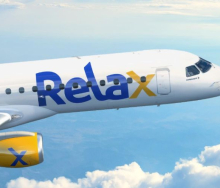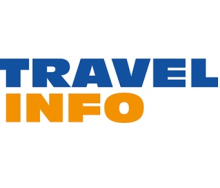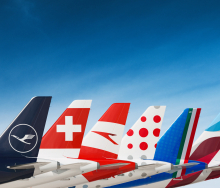The ‘new normal’ will mean a new kind of customer, and agents will need to adapt to the new demands of the market. In her presentation on day two of the Asata summit, Natalia Rosa, md of Big Ambitions, gave some usable, practical advice and outlined ten things that agents need to know about customers in the ‘new normal’:
- Everyone is a germophobe: Customers will have major concerns – not just when travelling, but during interactions with agents too, said Natalia. The travel product that customers will seek will be also be very different. “Goodbye queues, tourism and dense crowds, and hello outdoor destinations with low-density travel, and travel contained within your own social bubble – so it’s family and friends, hyperlocal travels, and travel close to home.”
- Budget is tight, for both corporate and leisure: “You’ll turn that penny over twice before you spend it. Value will be important, but peace of mind will be equally important,” said Natalia. She added that ‘conscious consumption’, wherein purchasing was centred on basic needs and an aversion to wastage, was prominent at the moment.
- Online or bust: “COVID has forced even the most Luddite of us to digitise – necessity really has been the mother of invention,” she said. “The added advantage to more customers online is access to more data – make sure you use it.”
- Caring for fellow humans: Natalia emphasised the importance of putting safety before profits and being authentic in the desire to help others. “We look to organisations to become more human – looking at their own values, explaining them, and acting on them in an authentic way to generate trust, safety and connection.”
- Caring for our planet: “Customers want businesses to be accountable for the environment and social impact.”
- Caring for ourselves and loved ones: “There’s been a seismic shift toward self-care,” she noted.
- Flexibility in times of uncertainty: Natalia said the industry needed to implement flexible terms and conditions, as customers usually only changed plans when forced to. Flexibility in booking policies would reduce fear and create demand for travel.
- A return to the expert for support. “I can’t think of anyone in their right mind at the moment who will try to do travel (which has become very complicated) themselves.” Agents have an opportunity to show their value proposition as experts, and to show they provide support in an uncertain environment for those who need more certainty, she said.
- More screen time: Online audiences have become highly engaged, from answering more surveys to attending more webinars. She added that the use of social media had increased dramatically, and events on virtual platforms had soared.
- How travel has evolved: Natalia said travel would still be impacted in the following ways –
* An increased amount of time will be required to get through processes like airport check-in and boarding;
* The cost of travel will be affected as more layers are integrated to keep people safe;
* A new kind of ‘travel of living’ will emerge, where instead of taking a holiday, consumers may want to work remotely and enjoy work and play at the same time;
* Domestic will outpace international as we wait for different parts of the world to be ready; and
* ‘Fluffy’ business trips will be replaced by corporate travel for essential purpose only.
Keeping the new customer in mind, she listed a number of ways that business could adapt. She said that businesses would need to become customer-centric and take action swiftly. “Whatever you do, be agile. Ensure you are monitoring what’s happening, and your team is ready to move quickly and take the right action.”
Business will also need to track leading indicators. “You have access to a lot more data – take advantage of that. Decide what indicators will be important to customers and business so you have some form of North Star in a very erratic and uncertain environment.”
She reiterated the importance of accelerating digital transformation, by stepping up websites and social media, hosting a virtual event, or creating an app.
Finally, she said businesses needed to be kind, true and caring. “It can be tough, but customers can sniff out inauthenticity and self-promotion, and are extremely averse to it. Find humanity in your brand and connect with customers from a place of empathy.”
During the Q&A session, Asata ceo, Otto de Vries, said the organisation was trying to create a COVID-19 recovery tool to support agents. “We will do our level best after this summit to try and deliver a high-level recovery tool kit, something that will help you all in preparing a travel blueprint for your clients. We will endeavour to support your efforts to give clients the comfort they need to confidently book travel again.”















